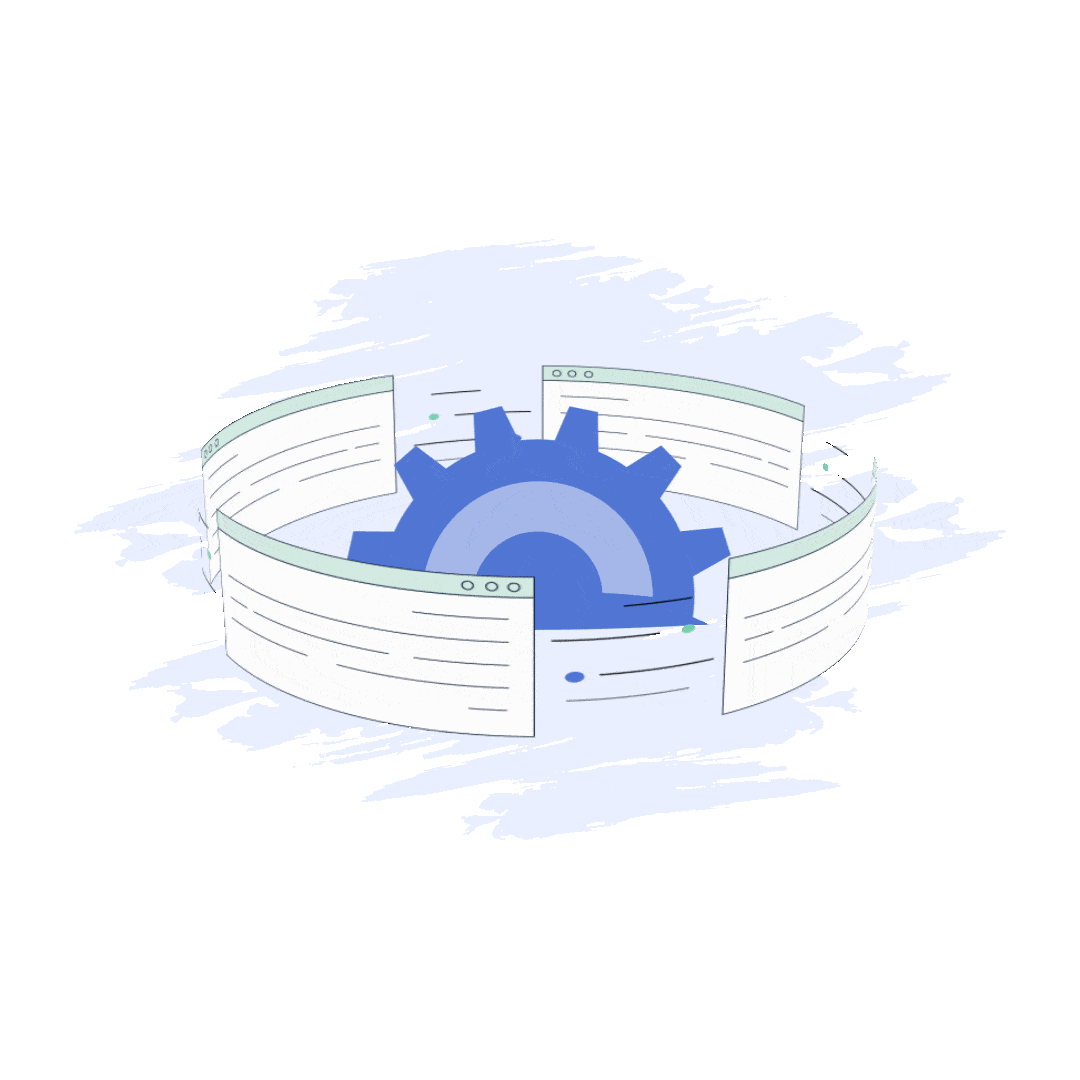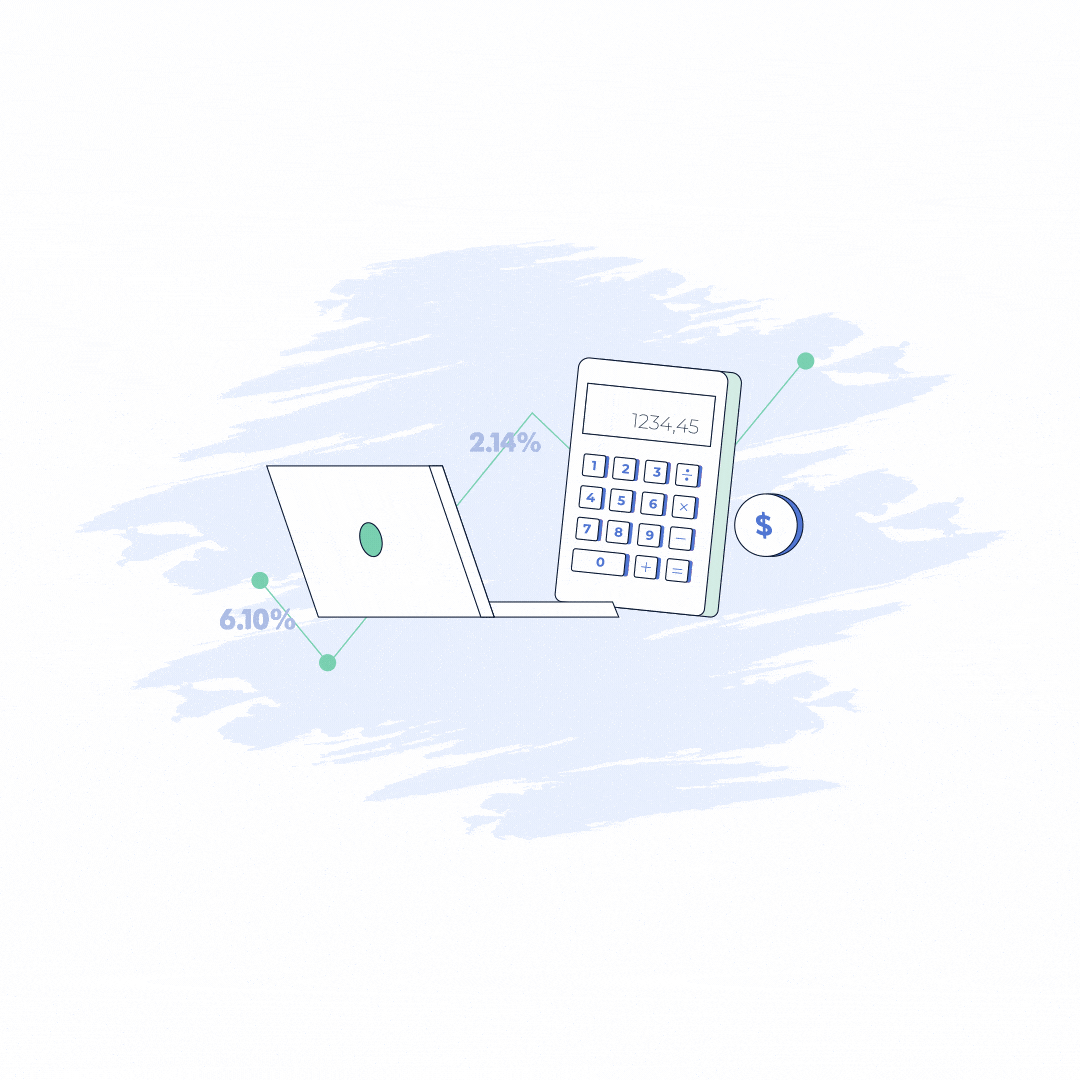Why Zamp?
Combining technology and help from sales tax experts is a game changer.
We do the heavy lifting, so you don’t have to.

Fully Managed Solution
Stressing over sales tax is a thing of the past. All you do is click approve, and we handle the rest. You'll always be up-to-date and sales tax compliant.

Developer Friendly Sales Tax API
Connect your existing e-commerce, marketplace & ERP systems within minutes, and use Zamp’s API for roof-top accurate sales tax calculations.

One Price
One simple price that scales with your business. No overages, no hidden fees, no surprises.
Sales Tax for Business
- Navigating Sales Tax Nexus
- Sales Tax Rates and Rules Across States
- How to Comply with Sales Tax Regulations
- Technology for Sales Tax Management
- Sales Tax Exemptions
- Audits, Penalties, and Compliance Risks
- Using Technology for Sales Tax Compliance
- Why Choose Zamp?
- Sales Tax for Business FAQ
Before we take a look at sales tax for business, let’s go through the basics. Retail sales tax is a type of consumption tax that's added to the price of goods and services when you buy them. It's different from income tax, which you pay on the money you earn, and property tax, which is based on the value of the things you own, like houses or cars. Sales tax is a transactional tax, which means it comes into play during the exchange of goods or services.
As a business owner, it’s your job to add the correct sales tax to the products you sell, collect this tax from your customers when they make a purchase, and then pass this money on to the right tax authorities. This is why sales tax is sometimes called a "pass-through tax" because it passes from the consumer to the government, through you, the business owner.
In the United States, every state except for five has its own sales tax rules. This means if you don't handle sales tax correctly, you could face penalties or legal issues, which could really hurt your business financially and damage your reputation.
Here’s where it can get tricky: sales tax rates and rules can vary widely across thousands of different places. You might wonder why you need to worry about all these different rules if you have a small shop or online store. The key is something called "nexus." Nexus is a fancy way of saying your business has a presence in a state. If your business has a nexus in more than one state (like if you sell things online to customers in different states), you need to understand and follow the sales tax laws in each of those states.
Book a call today
We'll answer all of your sales tax questions & address any of your concerns to ensure that you never have to worry about sales tax again-
1Book a free 30 minute call
-
2Meet with one of our experts
-
3Get sales tax off your plate
Navigating Sales Tax Nexus
Having a nexus in any given state comes with tax obligations. That much we've covered. But what is a nexus? Simply put, it's the connection between your business and a tax jurisdiction.
What sort of "connection" are we talking about here? Nexus can arise from different factors, with physical presence and economic activity being the primary determinants. Let's explore each of these in more detail.
Physical Presence Nexus
This type of nexus is created when your business has a tangible physical connection to a state, such as an office, store, warehouse, or even the presence of employees or inventory within that state's borders.
Even temporarily conducting business activities like trade shows can trigger a physical presence nexus in some cases.
Economic Nexus
The economic nexus concept emerged after the landmark South Dakota v. Wayfair Supreme Court case.
It allows states to require out-of-state sellers to collect and remit sales tax based on their economic activity levels within the state. Usually, this economic activity is defined by revenue or transaction thresholds.
Most states have implemented economic nexus laws with thresholds like $100,000 in annual sales or 200 separate transactions into the state.
Click-Through Nexus
Click-through nexus happens when your business earns commissions from website links that direct customers to sellers. Essentially, if your website links encourage shoppers to buy from a business, you might need to collect sales tax in the states where those shoppers reside. Several states have adopted this type of nexus, targeting businesses that gain substantial traffic and sales through such affiliate links.
Affiliate Nexus
Affiliate nexus is similar to click-through but focuses on partnerships. If you have affiliates—companies or individuals who promote your products in exchange for a cut of the sales—in different states, you might have an affiliate nexus. This type of connection means you're responsible for collecting sales tax in states where your affiliates operate, especially if their activities are substantial enough to influence sales significantly.
Marketplace Nexus
Marketplace nexus is a newer concept that impacts businesses selling through large online platforms like Amazon, Etsy, or eBay. This nexus applies when the marketplace facilitates sales for third-party sellers. Many states require these platforms to collect sales tax on behalf of the sellers, simplifying sales tax compliance but also broadening the tax obligations for all parties involved in online marketplaces.
The Small Seller Exemption
Now, this is good news for really small-scale sellers! To provide some relief to very small operations, many states have incorporated a "small seller exemption" into their economic nexus laws.
But that's not to say that all small business owners are exempt. Sure, a threshold of $100,000 may seem high initially. However, small businesses must remain vigilant as they grow.
More sales in multiple states increase the likelihood of triggering economic nexus, bringing new sales tax obligations for small businesses. Crossing these thresholds unnoticed can lead to penalties down the line!
Sales Tax Rates and Rules Across States
The primary hurdle in navigating sales tax across different states is the sheer variety of tax rates and rules. Here are a few examples:
Clothing is entirely exempt from sales tax in Pennsylvania, but in New York, it's only exempt if it costs less than $110.
Georgia does not have a state-level tax on groceries, however purchases in Cherokee County are subject to a 2% local tax. In contrast, Missouri taxes groceries at a reduced state rate of 1.225%, but local jurisdictions have the authority to impose additional taxes on these items.
In Ohio, SaaS (Software as a Service) is taxable when used for business purposes but not for personal use while SaaS for personal use is taxed at the full state rate in Connecticut and commercial use enjoys a reduced tax rate of just 1%.
Fortunately, there are tools designed to simplify this complex landscape. Tax rate databases, automated sales tax compliance software, and services by third-party providers can help businesses manage sales taxes for different states. These tools are continually updated so your business stays in compliance.
How to Comply with Sales Tax Regulations
Let's explore the key steps for paying sales tax as a business (registration, collection, filing, and reporting).
Sales Tax Registration and Collection
Before you learn how to calculate sales tax for small businesses, you need to apply for a permit first, which you can do online.
Here's how:
- Gather essential information like your EIN, business name, address, owner details, and business description.
- Visit your state's Department of Revenue website (it may also have a different name like Comptroller or Tax Administration).
- Navigate to the "Sales and Use Tax" section and find the business registration link.
- Complete the online registration process and pay the required fees.
That's it - you should receive a permit that legally allows you to start collecting sales taxes on your products.
However, the key to collecting the right sales tax amount is knowing how to calculate sales tax based on the point of sale. To do that, combine all applicable state, county, and city taxes for that jurisdiction. Then, apply that total rate to the taxable sale amount.
Don't forget to maintain a separate bank account for sales tax funds to segregate the money and prevent accidental use for other expenses!
Filing and Reporting
Once registered, states will assign you a filing frequency (monthly, quarterly, annually). Most states encourage online filing and paying sales tax for small businesses but may allow paper returns, too.
Here are some tips for efficient and timely small business sales tax reporting:
- Be prepared to break down the collected taxes by state, county, and city tax jurisdictions.
- File returns on time even if you had no transactions in a given state.
- If your business no longer meets economic nexus thresholds in a state, you can contact the tax authority to cancel your sales tax permit and cease filing requirements.
- Seek professional tax advice when unsure about your obligations.
Book a call today
We'll answer all of your sales tax questions & address any of your concerns to ensure that you never have to worry about sales tax again-
1Book a free 30 minute call
-
2Meet with one of our experts
-
3Get sales tax off your plate
Technology for Sales Tax Management
So, you realized you have nexus in a few states and figured out how to pay sales tax as a small business. Unfortunately, trying to keep up with frequently changing sales tax rates, rules, and filing requirements across multiple jurisdictions can quickly become overwhelming.
Sales tax software will become essential as your business grows. And no, these software solutions aren't just for large-scale enterprises. They are suitable for small businesses as well!
The role of dedicated sales tax solutions is to automate and streamline the tax management lifecycle. From accurate tax calculation at the time of sale to filing returns, new technology can take the burden off your shoulders.
Plus, the seamless synchronization of sales data eliminates error-prone manual efforts like data entry. You can even upload historical transaction information for a complete compliance snapshot across all jurisdictions.
The net result? Small business owners can reclaim valuable time and resources to focus on core growth objectives.
However, the key is finding a solution tailored to their needs and budget while offering robust capabilities like:
- Determining correct tax rates based on ship-to-addresses
- Seamless integration with e-commerce platforms, ERPs, accounting software, etc.
- Easy multi-jurisdiction tax filing and remittance
- Detailed, jurisdiction-specific reporting
- User-friendly interface requiring minimal training
Sales Tax Exemptions
Now that we’ve established that the world of sales tax can feel like a puzzle, we’re going to complicate it a bit more and jump into exemptions - those special cases where sales tax doesn't apply. For small business owners, understanding these exemptions can save money and prevent headaches.
Common Sales Tax Exemptions: How and When They Apply
First, let's talk about what gets a pass from sales tax. Generally, items necessary for life like groceries and medicine often skip the sales tax to keep essential goods more affordable. However, the rules can vary widely from one state to another, so it’s crucial to check the specifics for your location. For example, while clothing might be exempt during a special "tax holiday" period in some states, it's taxed just like any other item in others.
Managing Exemption Certificates and Avoiding Common Pitfalls
When a customer doesn’t have to pay sales tax because of an exemption, businesses must collect and manage exemption certificates. These are official documents that prove the sale was tax-free legally. Keeping accurate records of these certificates is essential. If you can’t provide them during a tax audit, you might end up owing sales tax on those previously exempt sales.
Audits, Penalties, and Compliance Risks
Sales tax audits often begin when the figures you report don't line up with what's typically expected from businesses similar to yours. Common triggers for these audits include frequently filing your taxes late, failing to provide proper paperwork for tax-exempt sales, or inaccuracies in the taxes you collect. To avoid hefty fines and penalties, it's crucial to file your taxes on time and maintain clear, comprehensive records of all transactions, including exemptions and returns.
To keep your business audit-proof, organization and thoroughness are key. Ensure that you keep detailed records of all sales and the taxes you've collected, and store these documents for the duration required by law. Regularly reviewing and updating your sales tax settings to conform to current regulations and diligently tracking every exemption certificate can prevent future complications.
Using Technology for Sales Tax Compliance
The key to using technology in sales tax is to automate the tax calculations. This helps avoid mistakes that can happen when people do this manually and keeps up with changes in tax rates no matter where a sale takes place. By using software that works directly with sales systems and online stores, businesses can automatically apply the right tax rates, making it easier to handle more sales without increasing errors.
In tech, updating software often is important, and the same goes for staying updated with tax laws. Tax software updates itself to reflect new laws, so businesses always use the latest rules without needing to make these updates manually. This is especially useful for businesses that sell in different areas, where tax laws can vary a lot and change often.
Today's technology doesn't just keep up with the present; it also uses past data to predict future trends and risks. By looking at past sales data, businesses can guess future sales trends, see how tax changes might affect them, and get ready for new tax laws. This forward-thinking helps businesses avoid problems before they happen and make smarter plans.
Technology also makes tax audits less stressful by keeping all tax records correct and easy to find. Digital tools put all transactions, exemption certificates, and necessary documents in one place, making audits faster and less costly. Automated systems can also spot problems in tax records early, helping businesses fix them before they cause bigger issues.
Finally, using technology for sales tax not only helps follow the rules but also makes shopping better for customers. Accurate, quick tax calculations prevent mistakes that could upset customers. Also, with less time needed for tax work, businesses can focus more on helping their customers.
Why Choose Zamp?
Zamp provides a comprehensive service model, handling every detail from initial setup through adapting to changes in sales tax laws. Our automated systems take the stress out of sales tax compliance, allowing you to concentrate on growing your business, secure in the knowledge that Zamp ensures accuracy and adherence to regulations. Trust in Zamp to manage your sales tax obligations and relieve your team of this complex task.
Are you ready to eliminate the hassle of sales tax? Contact Zamp today for a demonstration of how our services can streamline your operations. With Zamp’s support, you can forget about dealing with sales tax and focus on what you do best. Reach out to our specialists now to start simplifying your sales tax responsibilities.
Book a call today
We'll answer all of your sales tax questions & address any of your concerns to ensure that you never have to worry about sales tax again-
1Book a free 30 minute call
-
2Meet with one of our experts
-
3Get sales tax off your plate
Sales Tax for Business FAQ
Sales tax exemptions typically include necessities such as groceries, prescription medications, and sometimes clothing. Additionally, products sold for resale or raw materials used in production may be exempt to avoid taxing the same item multiple times. Each state has its own specific list of exemptions, so it's essential to consult local regulations.
Generally, if your business has a physical presence or "nexus" in a state, you are required to collect sales tax from customers in that state. A nexus is established through physical locations, employees, or significant amounts of sales or transactions. Some states also require sales tax collection from online sales regardless of physical presence.
Due to the South Dakota v. Wayfair decision, many states now require online sellers to collect and remit sales tax if they exceed certain thresholds of sales or transactions in the state. It's crucial to check each state’s requirements where your customers are located to ensure compliance.
Yes, there are various sales tax software solutions available that can automate the process of calculating, collecting, and remitting sales tax. These systems can integrate with your sales platforms and update automatically to reflect current tax rates and laws, significantly simplifying compliance.
Failing to collect sales tax where it is due can result in penalties, interest on unpaid taxes, and audits. These consequences can be costly and time-consuming. It is important to stay informed and compliant with sales tax laws to avoid these risks.
- Navigating Sales Tax Nexus
- Sales Tax Rates and Rules Across States
- How to Comply with Sales Tax Regulations
- Technology for Sales Tax Management
- Sales Tax Exemptions
- Audits, Penalties, and Compliance Risks
- Using Technology for Sales Tax Compliance
- Why Choose Zamp?
- Sales Tax for Business FAQ
Book a call today
We'll answer all of your sales tax questions & address any of your concerns to ensure that you never have to worry about sales tax again-
1Book a free 30 minute call
-
2Meet with one of our experts
-
3Get sales tax off your plate


